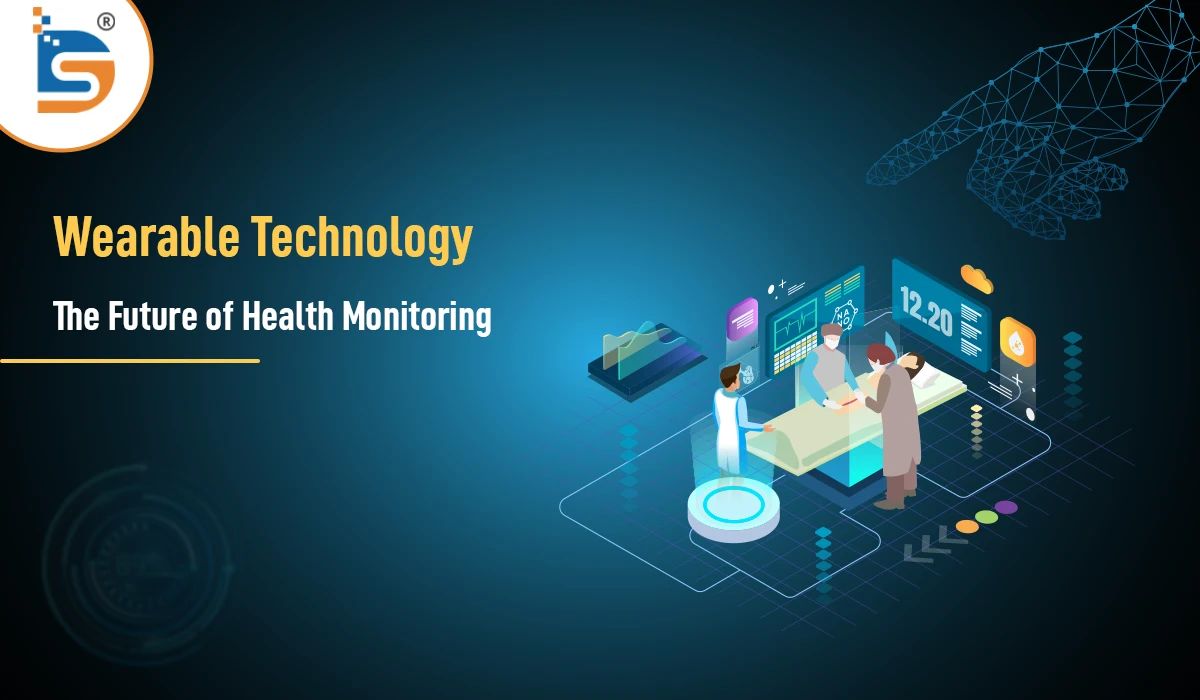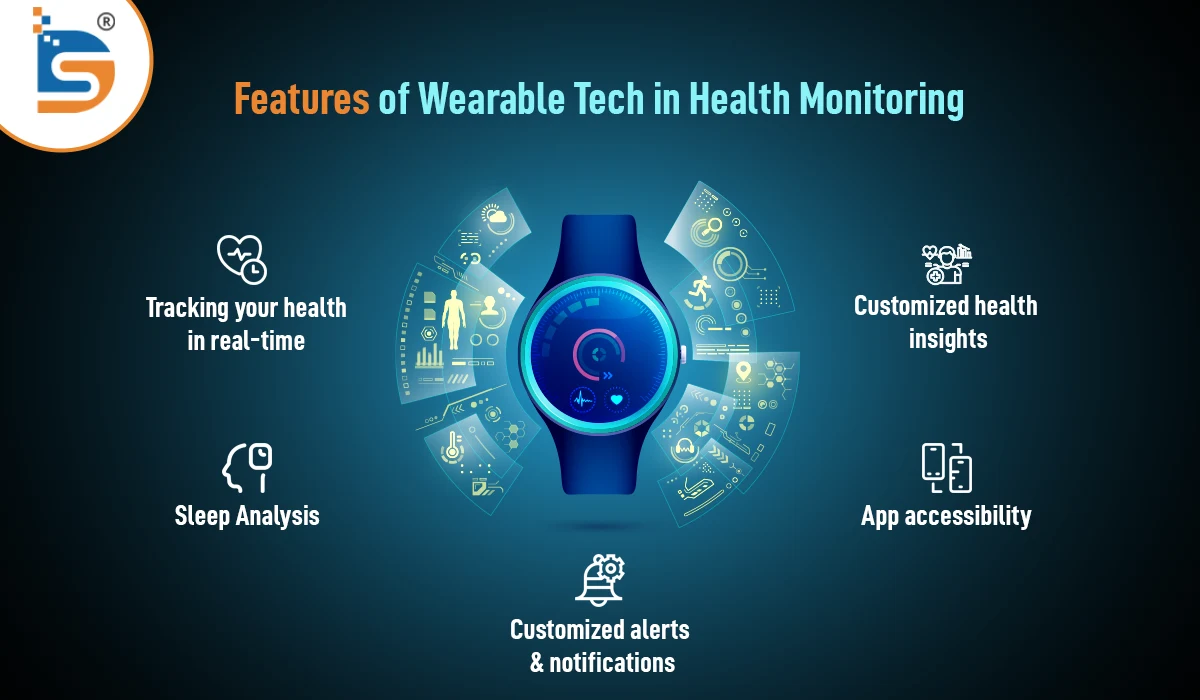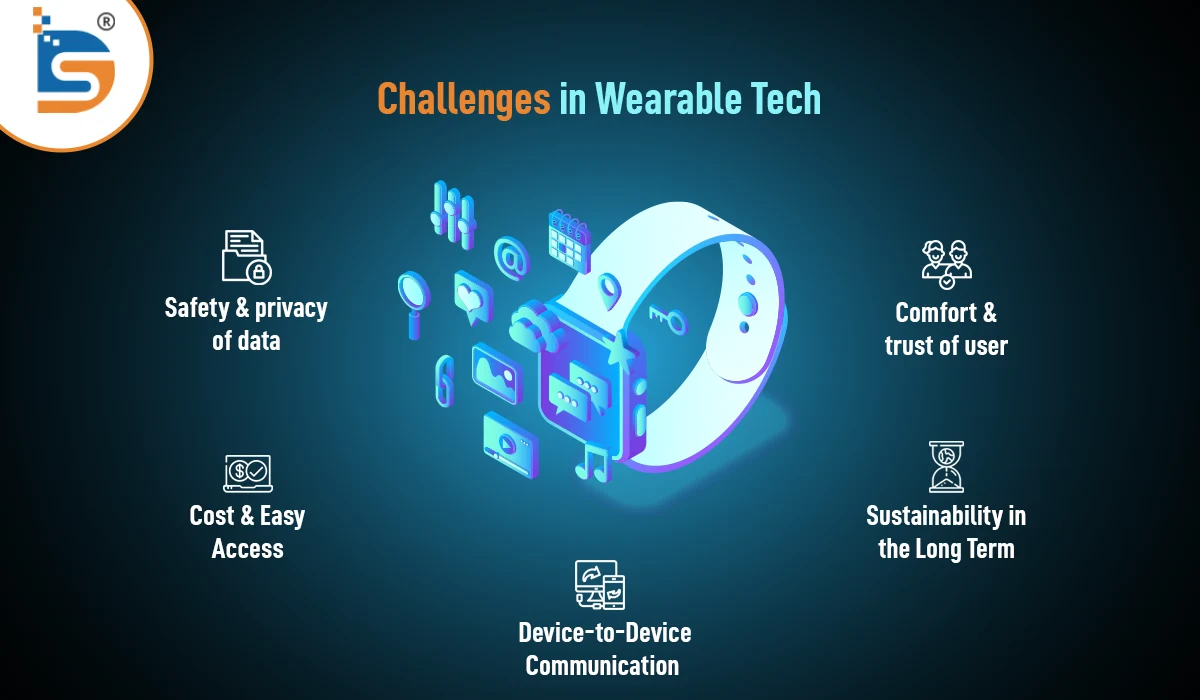Wearable Technology: The Future of Health Monitoring
BY : Sdreatech
29-Nov-2024

Introductions
Wearable technology is changing the healthcare industry with real-time health monitoring and individualized care. Wearable devices can detect symptoms, analyze sleep patterns, and provide customized health insights that could change healthcare.
Features of Wearable Tech in Health Monitoring
The healthcare business is changing because of innovative technology that measures different health data all the time and in real time. Learn about the key feature of health monitoring.

1. Tracking your health in real-time
Through real-time tracking, health problems like an uneven heartbeat or low oxygen levels can be observed early on. Users get immediate alerts that tell them to move quickly or call for medical help.
2. Sleep Analysis
Wearables with sensors can monitor sleep habits, figuring out the different types of sleep (light, deep, and REM) and the quality of sleep overall. It records the total length of time a person sleeps, the exact time they wake up, and the duration of each stage of their sleep cycle.
3. Customized alerts and notifications
Wearable devices can remind you to do many health-related functions, like taking medicines as required, staying hydrated, work out, and following to a normal sleep schedule. Multiple devices gives emergency alerts and notifications for symptoms of sickness.
4. Mobile app adaptability
Some wearable tech can share information on mobile devices through cloud computing. Users can see how their health is improving by keeping track of their data continuously. These applications often include a wealth of health-related data and facts for users to explore.
5. Customized health insights
Wearables provide customized health guidance by collecting data and analyzing using AI and ML algorithms. The user's physical activity level, daily habits, and health objectives determine these results.
Challenges in Wearable Tech
Wearable technology has a lot of potential, but there are some challenges that need to be fixed before it can be widely used and effective.

1. Safety and privacy of data
It is a challenge for manufacturers of wearable devices to install strong cybersecurity protections and encryption while maintaining their performance.
2. Comfort and trust of users
Wearables must be comfortable and secure to be used day after day. A lot of users lose their devices because they are uncomfortable or frustrated.
3. Device-to-Device Communication
When devices from different manufacturers cannot be standardized or cannot communicate with each other, that can make combining more difficult and make wearable tech less effective.
4. Cost and Easy Access
It's too costly to buy high-quality wearable tech, especially medical tracking devices with a lot of features. It is to difficult for those who don't have insurance or who live in places with few resources.
5. Sustainability in the Long Term
Wearable tech is more popular, but some people are concerned about how it will affect the world. Wearable devices also can contribute to electronic waste through their production and recycling.
Conclusion
Wearable tech is a big step forward in health tracking because it helps you track, analyze, and improve your health in real-time. It also changes the way we take care of our health every day by giving specific health information and giving us access to our phones. Data protection, user conformity, and cost are some of the challenges that need to be fixed before these devices can reach their maximum efficiency.